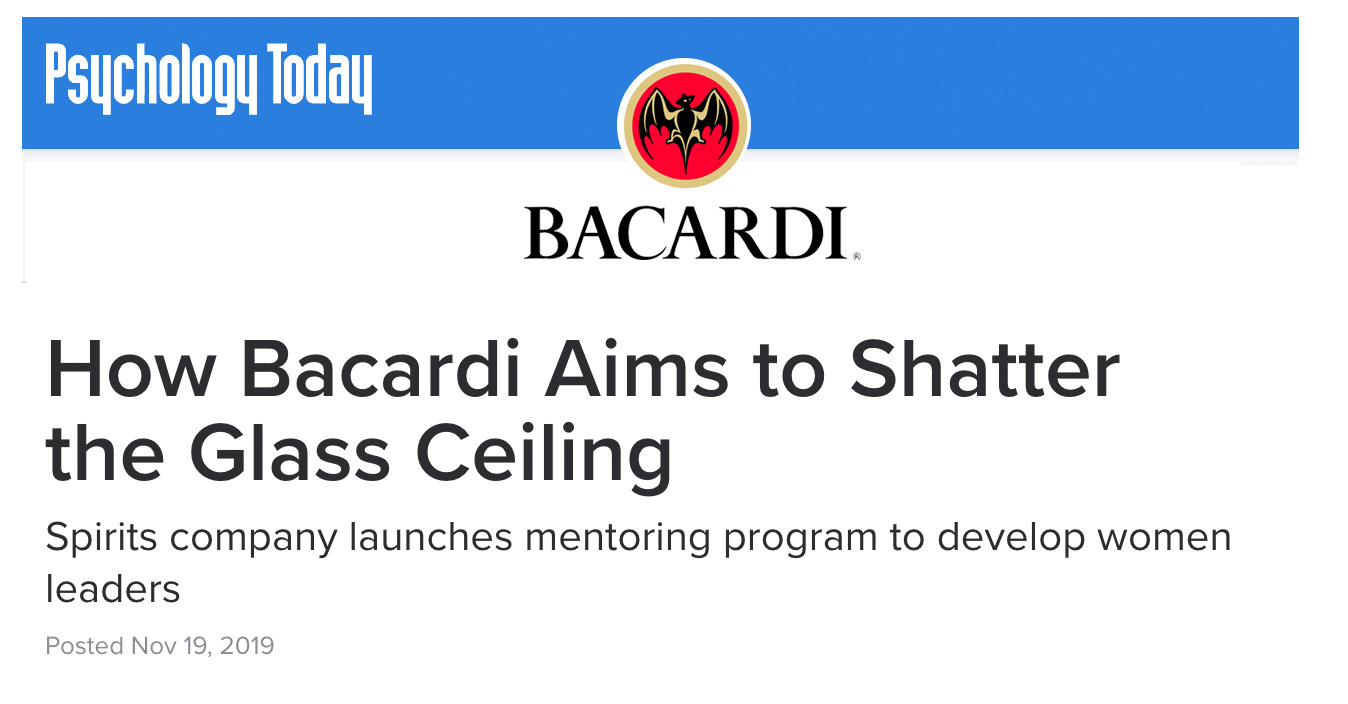The glass ceiling has slowly been cracking for years, but it is far from shattered. The 2019 Women in the Workplace report from McKinsey and Company and LeanIn.Org found that women occupy only 21 percent of executive roles in the C-suite with just under 30 percent representation in vice president and senior vice president roles. Although there has been progress in the last five years, there is still a lot of work to be done.
Some of that work involves rethinking when and how women are being targeted for developmental opportunities. "The McKinsey report points out that: “Contrary to popular belief, the glass ceiling is not the biggest obstacle to women’s progression. It is actually at the first step up to manager— or the ‘broken rung.’”In other words, the best strategy for helping prepare and elevate women to leadership roles is to provide developmental opportunities at their earliest stages of managerial development.
Human resources and learning professionals who really want to make a lasting impact on gender parity at the highest levels of leadership must start targeting early-career women who are looking for that first “step-up” to a people management role. One company out there leading the charge in this effort is Bacardi. As a privately held family company that has been in business for 157 years, agility is critical to competing on a global stage. In their quest to continually foster agility, Bacardi recently started looking inward for ways to identify and unleash their untapped talent: Women.
To learn more about their efforts, I spoke with Chio Zubiria, Senior Director for Supply Chain Planning at Bacardi. As a female executive who has been with Bacardi for 22 years, Zubiria has been through it all and now she is looking to give back. She recently took on the role of Chair of the Bacardi North America Women in Leadership (WIL) Development Committee where she has had an integral role in expanding mentoring for women throughout the organization. The program now has 700 participants worldwide. In our conversation, Zubiria shared her tips for developing and deploying a successful mentoring program.
Match for Chemistry
“I know there are conversations in the mentoring world about matching people who are the same versus matching people who are completely different,” explains Zubiria. However, Zubiria feels that it is really about chemistry first and then the diversity of experience second. In order to forge a successful relationship, the two participants need to feel a personal connection that will allow them to be open and share. In conjunction with this, Zubiria also feels that mentees or protégés can benefit from exposure to different aspects of the organization. As part of the matching process, they consider: article continues after advertisement
- Cross-functional or cross-departmental experience
- Skillset needs where there is an opportunity for development
- Mentors from outside their region
It’s also important to note that nearly half of the mentors are men. She believes if women are only talking to other women about women-specific issues they are missing an opportunity to broaden the conversation and build critical relationships that may lead to advancement opportunities.
Leverage Technology to Scale
Matching mentors and protégés can be a tough challenge to manage, particularly when participation expands rapidly. According to Zubiria, the most significant advancement in administering the program has been automated matching. As Zubiria explains: “When I first joined we were basically doing this by hand, which was very painful.”Shortly after the Bacardi acquisition of Patrón, the need for automation became increasingly more evident. To remedy this challenge, Bacardi partnered with MentorcliQ to automate the management of their ever-expanding mentoring program. “We are a far cry from the days having to use excel sheets and intuition,” explains Zubiria.
Structure the Relationship
Zubiria believes a successful mentoring relationship must be structured. Bacardi mentors and protégés agree to a set of agreed-upon terms that guide the experience. Mentoring contracts at Bacardi typically include the following:
- How often they will meet
- How long the term of the mentoring will last
- The specific issues or topics they are going to spend their time on article continues after advertisement The typical contract is for nine months consisting of 45-minute meetings every two weeks either in-person or via video chat. Zubiria and her team also conduct mid-contract check-ins to evaluate progress and provide feedback.
Train Your Mentors
Mentoring is a process that requires commitment, discipline, and skill. In order to ensure the quality of mentoring, the Bacardi team works with their mentors to develop the following:
- Listening patiently
- Asking open-ended questions
- Challenging assumptions
- Pushing mentees out of their comfort zone
- Guiding their mentees to their own answers
Understand What Protégés Are Seeking
The MentorcliQ tool allows Zubiria and the team to track the major themes emerging from the mentoring conversations. They have found the following to be the top four most consistent topics protégés are seeking guidance on:
- Career advice
- Networking
- Time management
- Work-life balance
A major element of the career advice theme is gaining insight on how to best approach potentially tough conversations with your manager, which is a challenge nearly every one of us has faced at some point in our careers. So, has it worked? According to their internal data female engagement is up 12 percent since 2017, bringing the engagement score for women at Bacardi on par with the score for men.




